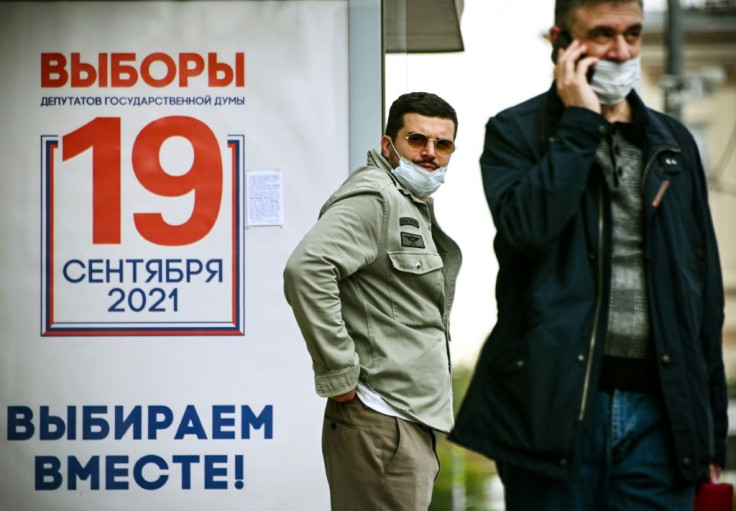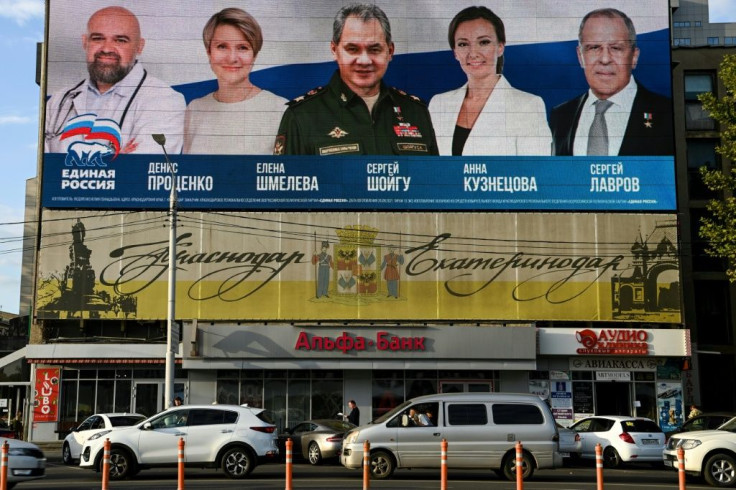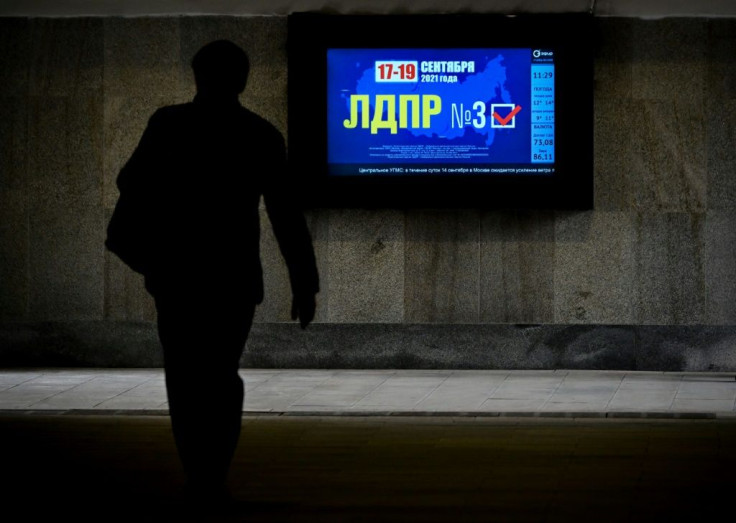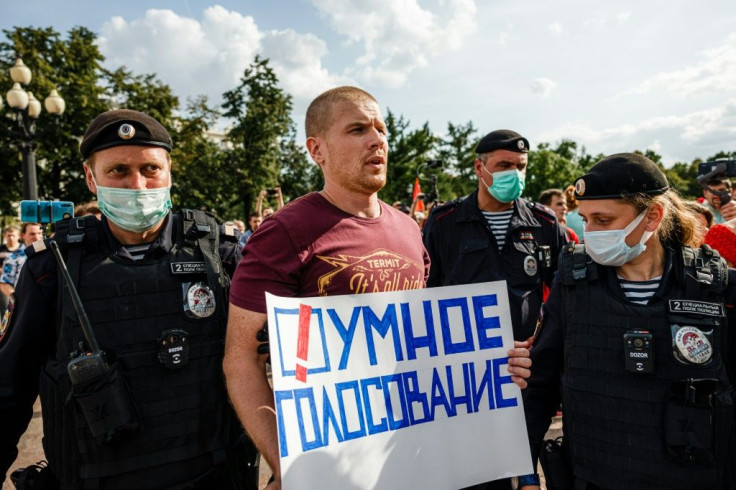Putin's Unpopular Party Slated For Election Win
When polls open Friday in Russia's parliamentary elections, few voters would bet against an easy win for the ruling United Russia party, even though it is more unpopular now than ever before.
The party was founded by President Vladimir Putin after he came to power in 2000, with the aim of translating his personal appeal into a dominant parliamentary force.
But after benefitting from the economic boom in Putin's early years, it has become a target for Russians' grievances and is now polling at under 30 percent.
"Everything that is unpopular is associated with United Russia," said independent political analyst Valery Solovey.

Still, it is expected to win.
During a lacklustre campaign, the authorities with nearly unlimited resources have gone to lengths to clear obstacles from United Russia's path to victory.
The methods serve a key Kremlin goal, said political scientist Ekaterina Schulmann: "How to make a parliamentary majority out of an electoral minority".
The authorities in January jailed Alexei Navalny, the Kremlin's loudest critic who dubbed United Russia "the party of crooks and thieves," and then dismantled his political offices nationwide.

They have also set out to block access online to Navalny's "Smart Voting" platform, which instructs supporters on which candidates to back to oust United Russia deputies and other Kremlin allies.
With many of Navalny's allies in exile following a crackdown, there will be fewer checks on the Kremlin party's performance over the three-day electronic vote with limited monitoring.

The Kremlin has tried to paint United Russia as a majority-backed party, but its growing disconnect with Russians is a headache for authorities.
"It's seen as the party of bureaucrats and state employees," Schulmann told AFP.
To boost its image, Putin assigned his most popular ministers -- foreign policy chief Sergei Lavrov and head of defence Sergei Shoigu -- to head the party's campaign.
But, analysts said, popular moves abroad delivered by the ageing ministers -- like the annexation of Crimea in 2014 from Ukraine -- have less impact than they once did.

"Society is only interested in internal issues," said analyst Alexei Makarkin.
Nowhere has the party's rhetoric -- heavy with Soviet nostalgia -- been shunned more than in the 12-million-strong capital Moscow.
In an effort to rebrand, the party has put forward television personalities, sportsmen as candidates.
Putin also summoned prominent Moscow doctor Denis Protsenko who has led Russia's fight against Covid-19.
Maria Butina, expelled from the United States for acting as a foreign agent, has been called up to run in the western Kirov region.
In Saint Petersburg, United Russia is reported to have had a candidate change his name to that of his opposition rival to confuse voters.
For all United Russia's efforts to put forward likeable candidates, some among the electorate see only variations on the same old theme.
"The elections are obviously a fiction," Anton Kositsin, a 26-year-old voter in Moscow, told AFP. "The lack of real choice is overwhelming."
The pandemic, meanwhile, brought an unexpected confrontation between United Russia and its loyal base.
While the party has supported Putin's plea to Russians to vaccinate themselves, part of its supporters are vaccine-skeptic. Some have turned away from the party over the issue, according to Makarkin.
And those most affected by coronavirus -- older Russians -- have not forgiven United Russia for a 2018 pension reform that sparked unexpected protests.
In a bid to lure them back, Putin -- who at 68 falls within the retirement age group -- handed them a one-time payment of $135 ahead of the vote.
Analyst Tatyana Stanovaya said the payments, which come as disposable incomes are falling and prices are rising, were effective.
Many Russians, she said, will back United Russia due to a lack of alternative and a belief that it represents a "lesser evil" over the opposition that is demonised in state media.
And, if need be, analysts said the party's results will be buttressed by falsifications and a bring-out-the-vote campaign among state employees.
© Copyright AFP 2024. All rights reserved.





















